Article - Research question Ethical Fading
[ Source: Prof. Dr. Ir. Genserik Reniers, Dr. Ing. Martin de Bree MBA, Prof. Dr. Ir. Behnam Taebi - Program Board SDN Innovation Centre ]
An underestimated risk in decision making is that considerations of safety may fade under the influence of other practical considerations or various forms of self-interest. This process is also known as Ethical Fading. Examples of incidents where Ethical Fading has played an important role are the fire at Chemiepack Moerdijk in 2011, the explosion at the Texas City Oil Refinery in 2005, and the Deepwater Horizon disaster in 2010.
Further research can lead to innovations in approach to counteract Ethical Fading. It is one of the ongoing research questions on safety culture of the Innovation Centre of Safety Delta Netherlands.
What do we already know about Ethical Fading?
Self-interest is an important trigger for Ethical Fading. Decisions are taken that are not in the interest of the organisation, but in the self-interest of the individual. Ethical Fading is partly unconscious and therefore difficult to recognise and combat. Ethical codes and training are necessary but not sufficient because they compete with economic and business frames.
Conditions that make Ethical Fading possible include the use of euphemisms such as justifying safety risks by using terms "if it must remain workable", expressions of complacency such as "this has been going well for 30 years" and a slippery slope of gradually slipping into greater laziness regarding safety aspects. Safety aspects remain hidden and subordinate in decision-making.
Measures to prevent Ethical Fading can be taken at both organisational and behavioural level. Examples are building in a time-out moment to raise safety issues, and training people to recognise self-deception, complacency and norm fading.
Why is research needed?
It is obvious that it is essential for (petro)chemical companies to know how and why Ethical Fading occurs, how it can endanger safety and what measures can be taken to prevent it.
First of all, an unambiguous conceptual framework with regard to Ethical Fading helps. In addition, analysis of management systems may provide insight into how the balance between individual interests and organisational interests with regard to safety is currently safeguarded. A sector-specific approach could then be derived from this.
A number of companies in the sector will already be far advanced with measures to prevent Ethical Fading. Sharing knowledge about this makes it possible to list rules and best practices on an organisational level. Other companies can benefit from this.
What do we want to investigate?
The research question is therefore: to what extent do companies ensure a balance between individual interests and organisational interests with regard to taking safety decisions?
Sub-questions for the study are:
- Which concepts are relevant to Ethical Fading and how do they relate to each other?
- What rules and best practices regarding ethical principles and behaviour have already been incorporated into companies' safety management systems?
- How do these rules and best practices address the causes of Ethical Fading?
- How could other (petro)chemical companies learn from these best practices?
In the coming months, the SDN Innovation Centre will try to bring parties together to carry out such a study.

Language:
Dutch

